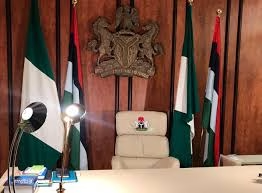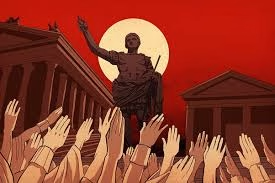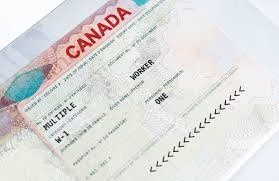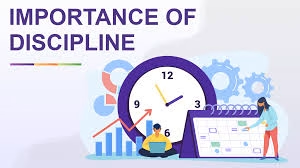
How to Run for Political Office in Nigeria: The Bold Hustler’s Guide to Power
To run for political office in Nigeria, one must be a Nigerian citizen, meet the minimum age requirement for the specific office, and be a member of a political party.
Running for political office in Nigeria is not for the faint-hearted. It’s a complex dance of ambition, strategy, money, and madness. If you think you have the guts, the grit, and maybe the godfather or at least a god plan then buckle up, because this is your no-nonsense guide to stepping into the lion’s den called Nigerian politics.
From the councilor’s office in the village to Aso Rock’s sprawling corridors, every position starts the same way: a decision. A decision to stop shouting from the sidelines and get into the mud yourself.
So let’s break down the hard truth about how to run for political office in Nigeria, with raw honesty, practical insight.
1. Decide: Why the Hell Are You Running?
Before posters, before rallies, before shaking hands and kissing babies you must answer this:
“Why do I want to run for office in Nigeria?”
If your answer is “to serve the people,” that’s fine, but dig deeper. Is it because your LGA is a mess? You want to fight corruption? Or you just know you’re smarter than the recycled failures in office?
Clarity of purpose is power. Nigerian politics will test your soul, so your reason must be deep enough to anchor you when things get ugly (and they will).
2. Know the Positions: From Councilor to President
Nigeria operates a three-tier democratic system local, state, and federal each with positions you can contest:
Local Level
- Councillor
- Local Government Chairman
State Level
- Member, State House of Assembly
- Deputy Governor
- Governor
Federal Level
- House of Representatives
- Senate
- Vice President
- President
Choose your battleground wisely. Many start small LGA councillor, ward rep, or House of Assembly build loyalty, and rise over time. Don’t rush the throne.
3. Check Your Eligibility
According to the Nigerian Constitution (1999, as amended), here’s what you need:
| Office | Age Requirement | Citizenship | Other |
|---|---|---|---|
| Councillor | 25 years | Nigerian by birth | Must be educated to at least secondary school level |
| House of Assembly | 30 years | Nigerian | Same as above |
| Governor | 35 years | Nigerian | Same as above |
| President | 35 years | Nigerian | Ditto |
You must also:
- Be a member of a political party (independents aren’t allowed yet)
- Have no criminal record involving fraud or dishonesty
- Be of sound mind (though this is loosely interpreted)
- Not be a member of any secret society or cult
4. Pick a Political Party (It’s Not Just About Ideology)
Nigeria has over 18 registered political parties, but let’s be honest PDP and APC dominate national politics. However, alternatives like Labour Party (LP), NNPP, SDP, and ADC are gaining ground.
When choosing your party, ask:
- Does it have grassroots structure in your area?
- Can it win in your zone?
- Is the internal democracy real or rigged?
- Will they give you the ticket or sell it to the highest bidder?
Don’t just pick a party. Pick a political machine. You need something that can mobilize votes, not just make noise.
5. Build Your Grassroots Base (AKA, “Your Structure”)
If you don’t have a structure, you don’t have a chance no matter your message, charisma, or wealth.
“Structure” means:
- Local loyalists in wards and polling units
- Women and youth leaders
- Political influencers (traditional rulers, clergy, union leaders)
- Ground soldiers who can mobilize, protect votes, and deliver numbers
Your structure must be active, loyal, and fed. If they don’t believe in you, they’ll sell you out at the first bag drop.
6. Declare Your Ambition Loudly
The moment you declare your ambition, the game changes.
- Host a declaration event in your community
- Visit party stakeholders, traditional rulers, and elders
- Appear on local radio or TV to announce your plans
- Begin social media campaigns (WhatsApp is king in the grassroots)
But beware: once you declare, you become a target. Be ready for scrutiny, envy, sabotage and even physical attacks.
7. Start Spending (But Spend Smart)
Let’s be real: Nigerian politics requires money. But how you spend it matters more than how much you have.
You’ll need funds for:
- Nomination forms (can range from ₦200,000 to over ₦100 million)
- Posters, banners, radio ads
- Logistics for meetings, security, and travel
- Mobilization on election day
But also:
- Feeding community people who show up
- Settling “area boys” who threaten disruption
- Supporting “party stakeholders” who expect “appreciation”
TIP: Avoid reckless spraying of cash. Be generous, but strategic. Show you’re a leader, not a magician.
8. Secure the Party Ticket (The Real Battle)
Getting your party’s nomination is often more difficult than the general election.
Here’s why:
- Primaries are rigged if you’re not careful
- Delegates often expect to be “settled”
- Godfathers control many party structures
What to do:
- Study the party’s primary process direct, indirect, or consensus?
- Secure delegates early (build relationships, not just throw cash)
- Don’t underestimate internal betrayals
- Petition INEC if you’re unfairly disqualified
No party ticket = no election, no matter how popular you are.
9. Campaign Like a Lion
With your ticket in hand, it’s now war.
Your campaign must:
- Speak to real local issues
- Offer a clear vision and agenda
- Use door-to-door mobilization
- Include youth townhalls, churches, mosques, markets
- Counter opponent propaganda quickly
- Use social media (X, Instagram, TikTok, Facebook) to reach the younger crowd
Pro tip: Avoid over-promising. Be bold but believable.
10. Secure Your Votes on Election Day
Election Day in Nigeria is a whole beast.
You need:
- Agents in every polling unit
- Lawyers on standby
- Tech team to monitor irregularities
- Peaceful but vigilant supporters
- Community influencers to de-escalate violence
Don’t just focus on getting votes. Focus on protecting them.
11. What Happens After the Win or the Loss
If You Win:
- Set up a transition team
- Begin grassroots thank-you tours
- Pick your cabinet or appointees based on loyalty and capacity
- Avoid immediate “retribution” against opponents—govern for all
If You Lose:
- Consider challenging the result legally (if credible)
- Don’t burn bridges. Stay relevant and helpful.
- Start planning the next election
In Nigeria, politics is a marathon, not a sprint.
Hard Truths They Won’t Tell You
- Godfatherism is real. Many elections are decided in hotel rooms, not voting booths.
- Thugs are often part of the system. But you must learn to manage risk don’t fund violence.
- INEC isn’t perfect. Be prepared for logistical failures and surprises.
- Your opponents will lie, bribe, and manipulate. Don’t fight dirty fight smarter.
- Ethnic and religious bias exists. Learn to speak across divides while staying authentic.
Whatsnextng Thoughts: Do You Have the Stomach for It?
How to Run for Political Office in Nigeria: Running for Political Office in Nigeria is like diving into a river full of crocodiles with only your ambition as your life jacket. But those who understand the game and play it smart can rise.
It’s not enough to want change. You must be strategic, relentless, and deeply rooted in the realities of Nigerian politics. If you want clean politics, be the example. But don’t be naïve.
The system may be broken, but it’s not bulletproof. If you’re bold enough to enter the game, enter to win and enter prepared.
Frequently Asked Questions (FAQ)
Everything you’ve ever wanted to ask about running for office in Nigeria but were afraid to say out loud
1. Do I really need to join a political party to contest an election in Nigeria?
Yes, you do. Nigeria doesn’t currently allow independent candidates. Even if you have the best ideas in the world, you must run under the banner of a registered political party—no exceptions. So find a party that fits your vision and get involved early.
2. What’s the minimum age to run for office?
It depends on the position:
- 25 years old for local council or State House of Assembly
- 30 for House of Reps
- 35 for Senate, Governorship, or President
Thanks to the #NotTooYoungToRun law, more young people are now eligible. But age is just the entry ticket you’ll still need serious strategy.
3. Do I need to be a university graduate to contest elections?
Nope. Legally, you only need a Senior Secondary School Certificate (SSCE) or its equivalent. But in reality, the more educated and articulate you are, the more likely people (especially the middle class) will take you seriously.
4. How much money do I need to run for office in Nigeria?
That’s the million-naira question literally. Costs vary wildly by office and location, but expect to spend millions on:
- Nomination forms (which alone can cost anywhere from ₦200,000 to over ₦100 million)
- Campaign posters, media, mobilization
- “Consultations” (aka: the political version of lobbying)
- Logistics on election day
If you don’t have deep pockets or strong backers, start small and grassroots.
5. Can a regular person with no political connections actually win?
Honestly? It’s tough but yes, it’s possible. It takes strategy, boldness, and real community work. Social media helps, but on-the-ground presence is everything in Nigeria. If people in your constituency don’t know you personally or haven’t seen your impact, they likely won’t vote for you.
6. What if I lose the primaries can I still run somehow?
Not through that party. If you lose the primaries, your options are:
- Appeal through the party’s internal mechanism (usually not fruitful)
- Defect to another party (but INEC deadlines matter)
- Sit it out and try again later
Nigeria’s politics is brutal sometimes it’s not about who’s best, but who’s best connected.
7. Do I need to bribe people to win?
You shouldn’t. But many still do. Sadly, voter inducement is common in Nigeria. That said, times are changing. The youth and educated electorate are becoming less tolerant of “stomach infrastructure.” You can still win clean—if you build real support and offer value.
8. What about godfathers do I need one?
In many political circles, having a godfather is almost expected. They control structures, money, and access. But that’s changing. Movements like Labour Party’s rise in 2023 showed that underdogs can succeed with the right timing, message, and movement. It’s hard but not impossible.
9. How do I protect my votes from being rigged?
Good question. You’ll need:
- Trusted and trained polling agents at every polling unit
- Eyes on INEC officials and collation centers
- Technology (e.g. real-time uploads, WhatsApp monitors, live broadcasts)
- Legal support in case of manipulation
But most importantly, keep your campaign clean and popular it reduces the need for desperate tactics.
10. Can women and young people win elections in Nigeria?
Yes, but they face more hurdles. Between patriarchy, lack of party support, and funding barriers, it’s twice as hard. But there are success stories: Aisha Yesufu, Rinsola Abiola, Damilola Olufemi and others have broken barriers or are working to. If you’re young or female, focus on grassroots building, alliances, and storytelling your why matters.
11. If I live abroad, can I come back and run for office?
Yes but with some conditions. You must be:
- A Nigerian citizen by birth
- Meet the age, education, and residency requirements
- Willing to reconnect with your community fast
Dual citizenship might disqualify you for certain offices (especially President or National Assembly), but not all.
12. How early should I start preparing?
The sooner, the better. If you’re serious about running in 2027 or 2031, start now:
- Build a community movement
- Volunteer in your constituency
- Join a political party
- Attend local meetings
- Understand your ward’s voting behavior
Politics rewards consistency, not last-minute desperation.
What’s Your Next Move?
- Are you ready to run in 2027 or 2031?
- What local issues are driving your passion?
- Who’s your political mentor or are you flying solo?
Drop your thoughts in the comments and share this with someone who’s got what it takes to lead.






